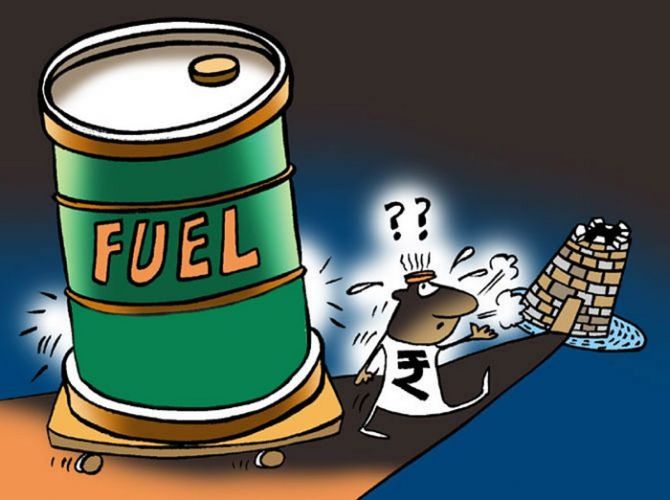The retrospective tax controversy was highlighted by Vodafone, but Cairn Plc’s continuing problems point to the impact this law has had on FDI in India’s oil and gas sector.

Edinburgh-based Cairn Plc, which slapped a restitution notice on the Indian government under Bilateral Investment Promotion and Protection Agreement (BIPA) in March 2015, is crying foul because its frozen assets here have been sold by the Delhi income tax department over a period of time.
This is the fallout of a long-drawn case involving retrospective taxation of capital gains on transactions between foreign entities involving assets based in India.
The company no longer has assets or investments in India.
Once a feted poster boy for investing in India’s sedimentary basins for oil and gas that could save imports, its paltry 0.1 per cent holding in Vedanta and the dividend that accrues from it are in the custody of the department.
The Rs 20,000-crore Vodafone arbitration award that the Union government lost recently was widely considered a test case of India’s retrospective tax legislation that was passed in 2012.
That verdict will probably be challenged in the Indian courts.
But an arbitration award for Cairn Plc has been awaited for almost two years.
The company wants $1.4 billion from the Indian government in damages, and is peeved at selling its almost 5 per cent holding in Vedanta, which merged with Cairn India in April 2017.
Does this long delay point to backroom negotiations with the government of India?
All that Cairn Plc’s official spokesperson said is that the award is expected “after summers”.
Though the dispute sits like a black hole on the Cairn Plc balance sheet since the company has not accounted for the tax demand, the company’s history and much of its fame even now is linked to a remote acreage in Rajasthan’s Barmer district.
The field produces around 20 per cent of India’s total crude oil production of 680,000 barrels a day.
This is the same asset in which Shell India bought interest after signing a production sharing contract on May 15, 1995, with the original licensee, Oil and Natural Gas Corporation (ONGC) and the Union government, but pulled out soon because it had little interest in India’s not-so-richly endowed basins.
Shell sold its entire stake in the Barmer block to Cairn Plc, then a small company even globally.
But Mike Watts, then the exploration in-charge at Cairn and a legendary figure in Rajasthan’s oil history, and his team found reserves of 1.1 billion barrels of oil in Barmer, a discovery that quadrupled the company’s share price and catapulted it into the FTSE 100 index.
As former ONGC chairman and managing director R S Sharma pointed out, “Cairn Plc’s success in Barmer changed the perception of global oil and gas companies about the Indian sedimentary basins.
"It also explains the impressive participation of global players in the initial rounds of New Exploration and Licensing Policy (NELP) bidding.”
Sharma headed ONGC when Cairn Plc sold its India arm Cairn India to Anil Agarwal’s Vedanta group in 2011 to cash in on the value it created at Barmer.
He also presided over some hard bargaining with the new buyers on an arbitration case involving cess payment.
The Union government sided with ONGC, which holds a 30 per cent interest in the block, and asked for the withdrawal of arbitration by Cairn India as one of the conditions to approve the sale.
Cairn India was created by its British owners and listed on the Bombay Stock Exchange in 2007.
Just before that, Cairn UK’s holdings in nine subsidiaries were transferred to the Indian entity.
Information of this transfer formed part of the initial public offer document when regulatory approvals were taken.
But, the tax department in January 2014 sent Cairn a notice to file its return on these transactions.
That was because the law on capital gains involving transactions by foreign entities on assets in India has been amended in 2012.
Much before the amendment, however, the tax department had asked British telecom giant Vodafone to pay Rs 11,000 crore for the transaction with Hong Kong-based Hutchison Whampoa to buy the Essar-promoted telecom company then known as Hutchison Essar.
This tax claim did not stand the test of courts even in 2013 when the Supreme Court struck down the demand.
The capital gains tax demand on Cairn Plc was made under this infamous retrospective amendment around the time it was struggling to sell its India business to Vedanta.
The tax assessment asked for a principal tax of Rs 10,200 crore due on the 2006 transactions with applicable interest and penalties.
This claim sounded the death knell for foreign interest in India’s oil and gas sector.
“Such tax amendments and unreasonable arm-twisting by the Indian tax regime turned away such major players from the subsequent NELP rounds,” said Sharma.
But despite Sharma’s assertion, it is also a fact India is low on investment priority when it comes to the upstream sector because the geological challenges in deep waters of some basins make the task difficult.
Barmer, in fact, did have its share of technical challenges that were compounded by differing interpretations of contract terms.
Shell gave up because it could not see viable reserves; when the block was finally developed under Cairn, the crude oil was of superior sweet quality but also “waxy”, making transportation a technical challenge.
A specialised pipeline was put in place to transport it but a long battle with the government ensued on whether the investment in the pipeline should be allowed as a cost recovery under the production sharing contract.
The oil exploration and production business involves a high degree of risk capital because of the geological uncertainties of blocks, so reserves are only best-guess estimates.
Under NELP and pre-NELP blocks, the government’s take from these blocks - a term known as profit petroleum - is derived after costs are deducted.
These costs, in the form of number of wells to be drilled, were defined at the bidding stage, making returns uncertain.
This inherent uncertainty in the oil business only becomes more slippery if policy changes hound critical risk capital retrospectively.












 © 2025
© 2025